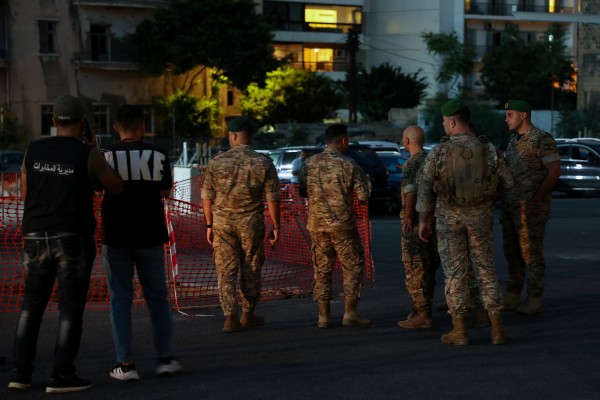Hand-held radios used by armed group Hezbollah detonated on Wednesday across Lebanon’s south in the country’s deadliest day since cross-border fighting erupted between the militants and Israel nearly a year ago, stoking tensions after similar explosions of the group’s pagers the day before.
Lebanon’s health ministry said 20 people were killed and more than 450 injured on Wednesday in Beirut’s suburbs and the Bekaa Valley, while the death toll from Tuesday’s explosions rose to 12, including two children, with nearly 3,000 injured.
Israeli officials have not commented on the blasts, but security sources said Israel’s spy agency Mossad was responsible. One Hezbollah official said the episode was the
biggest security breach in the group’s history.
The operations, which appeared to throw Hezbollah into disarray, played out alongside Israel’s 11-month-old war in Gaza and heightened fears of an escalation on its Lebanese border and the risk of a full-blown regional war.
“We are opening a new phase in the war. It requires courage, determination and perseverance from us,” Israeli Defence Minister Yoav Gallant said in remarks at an air force base.
Jordan’s Foreign Minister Ayman Safadi accused Israel of pushing the Middle East to the brink of a regional war by orchestrating a dangerous escalation on many fronts.
The U.S., which denied any involvement in the blasts, said it was pursuing intensive diplomacy to avert an escalation of the conflict.
A U.S. official, speaking on condition of anonymity, said Israel told Washington on Tuesday it was going to do something in Lebanon. But Israel did not provide details and the operation itself was a surprise to Washington, the official said.
At least one of Wednesday’s blasts in Lebanon took place near a funeral organised by Iran-backed Hezbollah for those killed the previous day when thousands of the group’s pagers exploded across the country and wounded many of its fighters.
A Reuters reporter in the southern suburbs of Beirut said he saw Hezbollah members frantically taking batteries out of any walkie-talkies that had not exploded, tossing the parts in metal barrels. Hezbollah turned to pagers and other low-tech communication devices in an attempt to evade Israeli surveillance of mobile phones.
Lebanon’s Red Cross said on X that it responded with 30 ambulance teams to multiple explosions in different areas, including the south of Lebanon and the Bekaa Valley.
Images of the exploded walkie-talkies showed labels with “ICOM” and “made in Japan.” According to its website, ICOM, which did not immediately reply to a request for comment, is a Japan-based radio communications and telephone company.
The company has said that production of model IC-V82, which appeared to be the model in the images, was phased out in 2014. The hand-held radios were purchased by Hezbollah five months ago, around the same time as the pagers, a security source said.
In Tuesday’s explosions, sources said Israeli spies remotely detonated explosives they planted in a Hezbollah order of 5,000 pagers before they entered the country.
The United Nations Security Council will meet on Friday about the pager blasts after a request by Arab states.
Tehran’s ambassador in Lebanon was superficially injured in Tuesday’s blasts, Iran’s semi-official Fars news agency reported then. But the New York Times on Wednesday said he lost one eye and the other was severely injured when a pager he was carrying exploded, citing two members of Iran’s Revolutionary Guard. Iran’s envoy to the U.N. said in a letter on Wednesday that it “reserves its rights under international law to take required measures deemed necessary to respond” to the attack.
HEZBOLLAH LAUNCHES ROCKETS
Hezbollah, which has vowed to retaliate against Israel, said on Wednesday it attacked Israeli artillery positions with rockets, the first strike at its arch-foe since the blasts. The Israeli military said there were no reports of any damage or casualties.
“Hezbollah wants to avoid an all-out war,” said Mohanad Hage Ali, deputy director of research at the Carnegie Middle East Center in Beirut. “But given the scale … there will be pressure for a stronger response.”
(REUTERS)
In a career spanning three decades and counting, Ramananda (Ram to his friends) has been the foreign editor of The Telegraph, Outlook Magazine and the New Indian Express. He helped set up rediff.com’s editorial operations in San Jose and New York, helmed sify.com, and was the founder editor of India.com.
His work has featured in national and international publications like the Al Jazeera Centre for Studies, Global Times and Ashahi Shimbun. But his one constant over all these years, he says, has been the attempt to understand rising India’s place in the world.
He can rustle up a mean salad, his oil-less pepper chicken is to die for, and all it takes is some beer and rhythm and blues to rock his soul.
Talk to him about foreign and strategic affairs, media, South Asia, China, and of course India.





